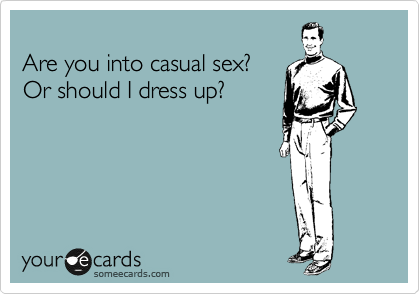
Always stay true to your inner skank. That is the moral of a new study by sex researcher Zhana Vrangalova, who has revealed that people who engage in casual hookups experience “less distress and high thriving following sex,” which is “amplified” by feeling unrestricted by your sexual partners and the pride of making authentic, unapologetic sexual choices.
In social science, the personality trait that measures degrees of interest in casual sex is termed “sociosexuality.”
According to the study, “Sociosexual orientation is a relatively stable tendency toward or away from casual sex, determined by a combination of heritable factors, sociocultural learning, and past experiences, and reflected in three key components: motivation for, attitudes toward, and past experience with casual sex.”
Researchers surveyed 371 college students about their sociosexuality by asking about their sexual behaviour over a nine-month period.
The study concluded, “Typically, sociosexually unrestricted individuals reported lower distress and high thriving following casual sex, suggesting that high sociosexuality may both buffer against any potentially harmful consequences of casual sex and allow access to its potential benefits.”
“The vast majority of unrestricted people desire, enjoy and form relationships,” Vrangalova says. “They just also enjoy and desire casual sex.”
 Why you can trust Xtra
Why you can trust Xtra


